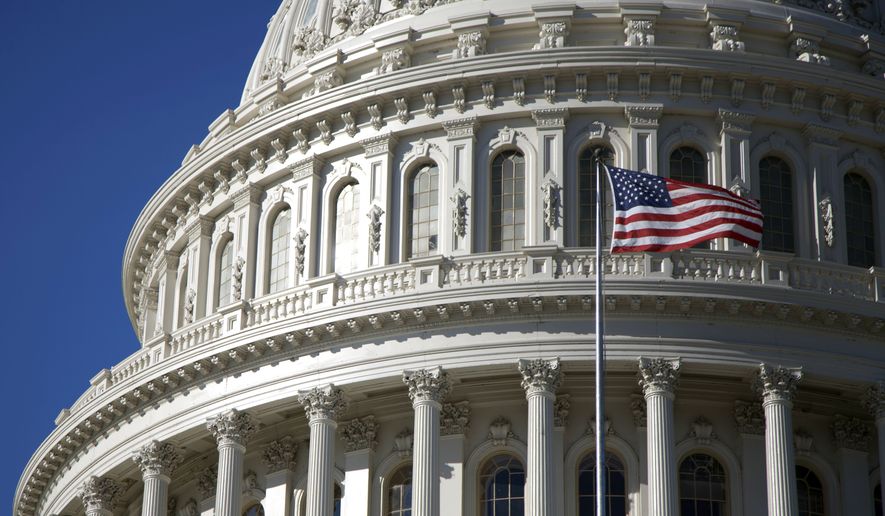Democrats sought Thursday to shield journalists from prosecution by reforming the U.S. Espionage Act that currently criminalizes unauthorized disclosures of classified information.
Sen. Ron Wyden of Oregon and Rep. Ro Khanna of California introduced a bicameral bill, the Espionage Act Reform Act, with the aim of rewriting the century-old federal secrecy law.
Introduced during World War I, the existing statute currently makes it possible for journalists or reporters to face prosecution for publishing classified government information.
Among the language included in the proposed replacement bill is verbiage meant to protect members of the press who solicit, obtain or publish government secrets from prosecution.
“In America we don’t prosecute journalists for what they write — especially when it comes to how the government may be weaponizing the intelligence agencies for political gain,” Mr. Wyden said.
Individuals accused of leaking classified information to journalists could still be charged under the Espionage Act if the proposal passes, albeit not the reporters and publishers who receive and share those secrets, the senator specified in a statement.
“This bill ensures only personnel with security clearances can be prosecuted for improperly revealing classified information,” Mr. Wyden said.
Although the Espionage Act has been mainly used in recent years to bring criminal charges against government employees and contractors accused of illegally leaking classified information to others, the Department of Justice broke new ground in 2019 when federal prosecutors indicted WikiLeaks publisher Julian Assange under the statute for releasing sensitive military and diplomatic documents through his anti-secrecy website.
Mr. Assange, an Australian, was initially charged in April with one count of conspiring to violate a federal anti-hacking law for allegedly trying to help convicted WikiLeaks source Chelsea Manning crack into a privileged Department of Defense computer system.
Mr. Assange was subsequently hit with a superseding indictment several weeks later charging him with 17 counts of violating the Espionage Act related to soliciting, receiving and publishing classified material from Manning, a former Army analyst, and is currently jailed in London fighting a U.S. extradition request and the possibility of spending decades in an American prison.
Reached by The Washington Times, a Wyden aide suggested passage of the proposed bill could effectively spare the WikiLeaks publisher from prosecution under the Espionage Act.
“Under this bill, the government could still prosecute Assange for the role he allegedly played in helping Chelsea Manning to hack [Defense Department] passwords, but the government couldn’t prosecute him for publishing classified information,” said an aide to the senator.
Manning, 32, was convicted in 2013 of violating the Espionage Act, among other statutes, in connection with admittedly leaking classified material to Mr. Assange’s website that were later published online.
Other notable prosecutions brought under the Espionage Act in recent years include the government’s cases against Edward Snowden, a former contractor who leaked classified material about the National Security Agency’s surveillance operations, and Reality Leigh Winner, a former intelligence specialist who disclosed documents involving Russian interference in the 2016 U.S. presidential race.
Neither would be affected by the proposed reform bill since it leaves in place penalties for federal employees and contractors who share secrets obtained through a trusted relationship with the government.
• Andrew Blake can be reached at ablake@washingtontimes.com.




Please read our comment policy before commenting.